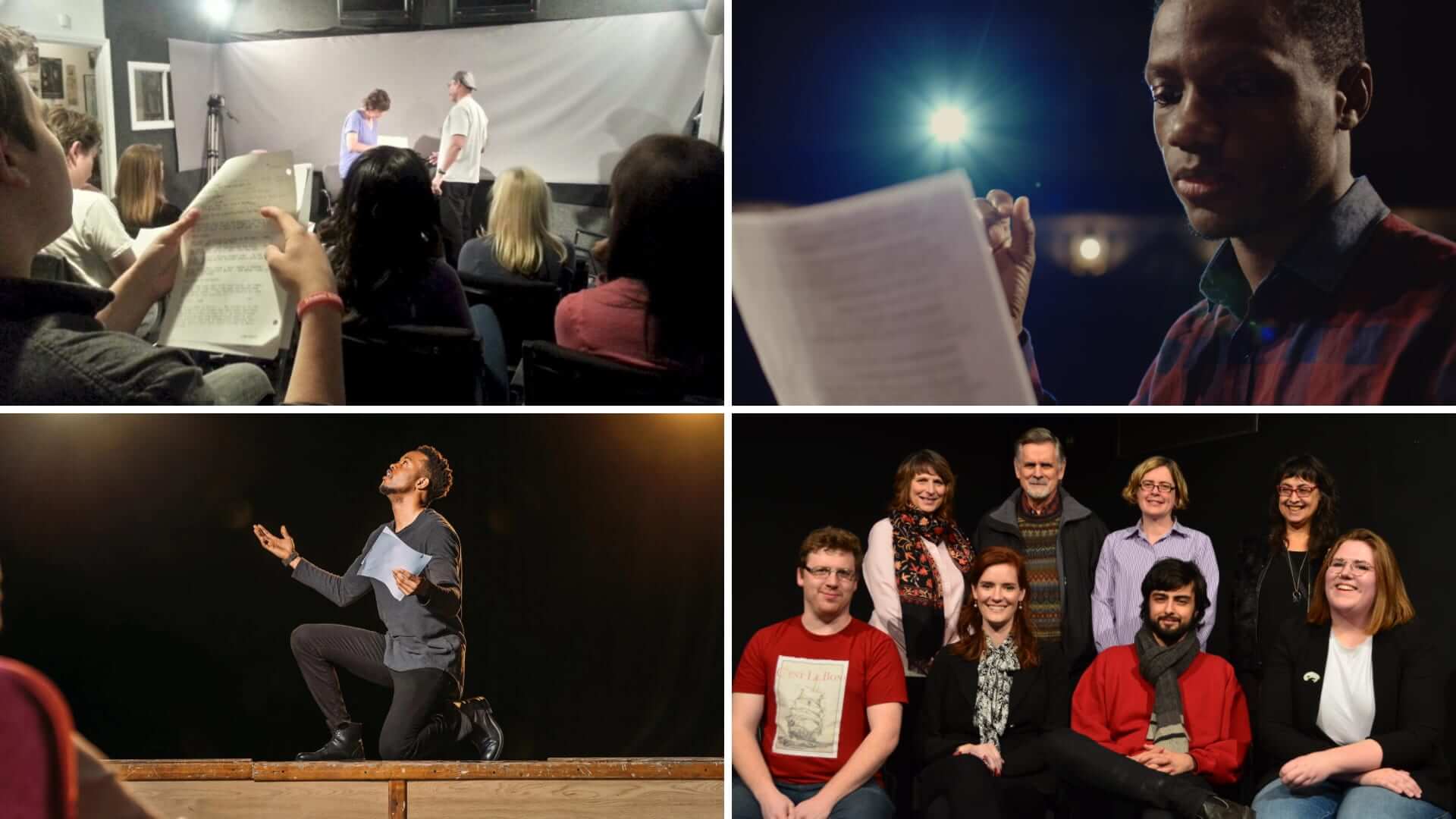I
magine being given a script, with characters you’ve never met, in a world you’re unfamiliar with, and only minutes to prepare before you’re expected to bring it all to life. Welcome to the world of ‘cold reading’ in acting. In this post, we’re going to run through some tips and tricks for actors to handle these impromptu and probably stressful moments.
What is a Cold Reading in Acting and Casting?
First, let’s define cold reading
The importance of cold reading cannot be overstated. It's not just about reading lines off a page; it's about unveiling your interpretation of the scene, showing who you are as an actor, and what unique elements you can bring to the role. It's akin to walking on a tightrope without a safety net, relying solely on your skills and instincts.
Let’s start by taking a look at the definition of cold reading.
COLD READING DEFINITION
What is a cold reading in acting?
A cold reading in the context of film and theatre can be defined as an impromptu rendering of a script or screenplay by an actor. This process involves the actor reading aloud the material for the first time, without any prior rehearsal or familiarity with the content. It is a test of their ability to interpret, understand, and bring to life a character on the spot, often under the watchful eyes of casting directors or producers. This skill is routinely employed in auditions and can significantly influence the trajectory of an actor's career.
What is a cold reading in acting used for?
- Showcases spontaneous interpretation
- Tests character embodiment skills
- Influences casting decisions
What is a Cold Reading in Acting Like?
The process of a cold reading
A cold reading session typically begins with the actor receiving a script or a portion of it and being asked to perform it on the spot. The actor, having had no previous opportunity to scrutinize or rehearse the script, is expected to dive straight into the character and the narrative.
This could range from delivering a single line to enacting an entire scene. This video by Tomorrows Filmmakers breaks down the process of cold reading and tips on how to approach it as an actor.
Acting 101 • How to Master Cold Readings
Often, a casting director or the production team will observe the actor's performance, evaluating not just their acting prowess but also their ability to think on their feet, adapt to unexpected situations, and deliver a compelling performance under pressure.
The actor's interpretation of the character, their understanding of the narrative, and their ability to communicate these effectively are all under scrutiny during a cold reading.
Related Posts
What is a Cold Reading in Acting Used For?
The function of a cold reading
Cold readings serve a number of vital functions in the world of film and theatre. From assisting in casting decisions to aiding in the development of an actor's interpretative skills, the importance of cold readings cannot be overstated. Here, we delve into the key functions of a cold reading.
Assisting in Casting Decisions
Cold readings are instrumental in the casting process. They provide casting directors with an unfiltered view of an actor's abilities, allowing them to assess whether an actor's interpretation and embodiment of a character align with their vision for the role. This immediate performance can reveal much about an actor's suitability for a role and their potential for growth within it.
Developing Interpretative Skills
Cold readings also serve as an invaluable tool for actors to develop their interpretative skills. The spontaneity of the process requires actors to make instinctive decisions about the character and narrative, strengthening their ability to interpret and embody roles quickly and effectively in the future.
Evaluating Under Pressure Performance
Finally, cold readings function as a method to evaluate an actor's performance under pressure. The lack of preparation time and the immediate nature of the reading can reveal how an actor handles stress and unexpected situations, both crucial elements in the dynamic environment of film and theatre.
Cold Reading Techniques
Tips on cold reading
Learning how to cold read can give an actor a competitive edge during auditions. Here are some tips to ace cold reading acting in your next audition:
Understand the narrative
Even if time is limited, take a few moments to understand the narrative, the characters, and their motivations. This will give your performance depth and authenticity.
Embrace spontaneity
Cold reading is all about being spontaneous and adaptable. Trust your instincts and allow yourself to be swept up in the narrative.
Focus on delivery
Delivering your lines clearly and confidently is just as important as embodying the character. Practice articulation and voice modulation to make your performance more engaging.
Engage with other characters
If there are other characters in the scene, engage with them. This demonstrates your ability to work in a team and adds dynamism to your performance.
Stay calm and composed
Finally, remember to stay calm and composed, irrespective of how challenging the script might be. Your composure under pressure is often a key factor that casting directors pay attention to.
At its core, cold reading is a test of an actor's adaptability and spontaneity. It's about taking a piece of text, often a scene from a script, and delivering a performance with little to no preparation.
This technique is commonly used during auditions, allowing casting directors to gauge an actor's instincts, their ability to embody a character on the fly, and how they can navigate through uncharted narrative waters.
Up Next
How to Become an Actor
Having explored the concept of cold reading, it's clear that this skill is an essential part of an actor's toolbox. But what does it take to become a successful actor in the first place? In our next article, we'll dive into the steps needed to break into the acting industry, and how to navigate the path to stardom.
